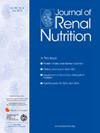Association Between Probiotic, Prebiotic, Synbiotics, and Yogurt Supplements and Diabetic Kidney Disease: The National Health and Nutrition Examination Survey 2007–2016
IF 3.2
3区 医学
Q2 NUTRITION & DIETETICS
引用次数: 0
Abstract
Objective
Diabetic kidney disease (DKD) is the most prevalent of chronic renal disease and the leading cause of end-stage renal disease worldwide, primarily attributed to the increasing prevalence of Type 2 diabetes mellitus (T2DM). We aimed to investigate potential associations between the consumption of probiotics, prebiotics, synbiotics, and yogurt and DKD, addressing a critical gap in current research concerning dietary interventions and renal health outcomes.
Methods
We conducted a cross-sectional study among adults with T2DM in the National Health and Nutrition Examination Survey from 2007 to 2016. Weighted univariate logistic regression analysis, subgroup analysis, and interaction analysis were conducted to assess the relationship between probiotics, prebiotics, synbiotics, yogurt supplements and DKD. In addition, the restricted cubic spline analysis was applied to assess potential nonlinear relationships between yogurt supplements and DKD.
Results
The study included 2,665 individuals, of whom 1,044 (39.2%) had a diagnosis of DKD. Multivariable logistic regression indicated an independent association between probiotic, prebiotic, synbiotic, or yogurt intake and a reduced risk of DKD after adjusting for covariates (odds ratio = 0.71, 95% confidence interval: 0.52-0.96, P = .03). Subgroup analysis results indicated inconsistencies in the correlations between DKD and probiotics, prebiotics, synbiotics, or yogurt. Interaction analysis showed that age, gender, urine albumin-to-creatinine ratio, estimated glomerular filtration rate, body mass index, hypertension, hyperlipidemia, or antibiotic therapy had no significantly influence on the positive correlation (all P > .05). The restricted cubic spline model indicated no nonlinear relationship between yogurt intake and DKD.
Conclusion
Our findings indicated significant inverse associations between probiotic, prebiotic, synbiotics, or yogurt supplements and DKD prevalence in T2DM patients. Further large-scale studies with extended follow-up periods are warranted to confirm these findings and develop evidence-based dietary guidelines for clinical practice.
益生菌、益生元、合成菌和酸奶补充剂与糖尿病肾病之间的关系:NHANES 2007-2016。
目的:糖尿病肾病(DKD)是世界范围内最常见的慢性肾脏疾病(CKD)和终末期肾脏疾病(ESRD)的主要原因,主要归因于2型糖尿病(T2DM)的患病率增加。我们的目的是调查益生菌、益生元、合成菌、酸奶和DKD之间的潜在关联,解决当前研究中关于饮食干预和肾脏健康结局的关键空白。方法:我们对2007年至2016年参加国家健康与营养调查(NHANES)的2型糖尿病(T2DM)成人患者进行了横断面研究。采用加权单变量logistic回归分析、亚组分析和交互作用分析来评估益生菌、益生元、合成益生菌、酸奶补充剂与DKD之间的关系。此外,限制三次样条(RCS)分析应用于评估酸奶补充剂与DKD之间潜在的非线性关系。结果:本研究纳入2665例个体,其中1044例(39.2%)诊断为DKD。多变量logistic回归显示,在调整协变量后,益生菌、益生元、合成菌或酸奶摄入与DKD风险降低之间存在独立关联(or = 0.71, 95% CI: 0.52-0.96, P =0.03)。亚组分析结果显示DKD与益生菌、益生元、合成菌或酸奶之间的相关性不一致。相互作用分析显示,年龄、性别、尿白蛋白/肌酐比(ACR)、肾小球滤过率(eGFR)、体重指数、高血压、高脂血症或抗生素治疗对正相关性无显著影响(均p < 0.05)。RCS模型显示酸奶摄入量与DKD之间无非线性关系。结论:我们的研究结果表明,益生菌、益生元、合成菌或酸奶补充剂与T2DM患者DKD患病率之间存在显著的负相关。有必要进一步进行大规模的研究,延长随访期,以证实这些发现,并为临床实践制定循证饮食指南。
本文章由计算机程序翻译,如有差异,请以英文原文为准。
求助全文
约1分钟内获得全文
求助全文
来源期刊

Journal of Renal Nutrition
医学-泌尿学与肾脏学
CiteScore
5.70
自引率
12.50%
发文量
146
审稿时长
6.7 weeks
期刊介绍:
The Journal of Renal Nutrition is devoted exclusively to renal nutrition science and renal dietetics. Its content is appropriate for nutritionists, physicians and researchers working in nephrology. Each issue contains a state-of-the-art review, original research, articles on the clinical management and education of patients, a current literature review, and nutritional analysis of food products that have clinical relevance.
 求助内容:
求助内容: 应助结果提醒方式:
应助结果提醒方式:


